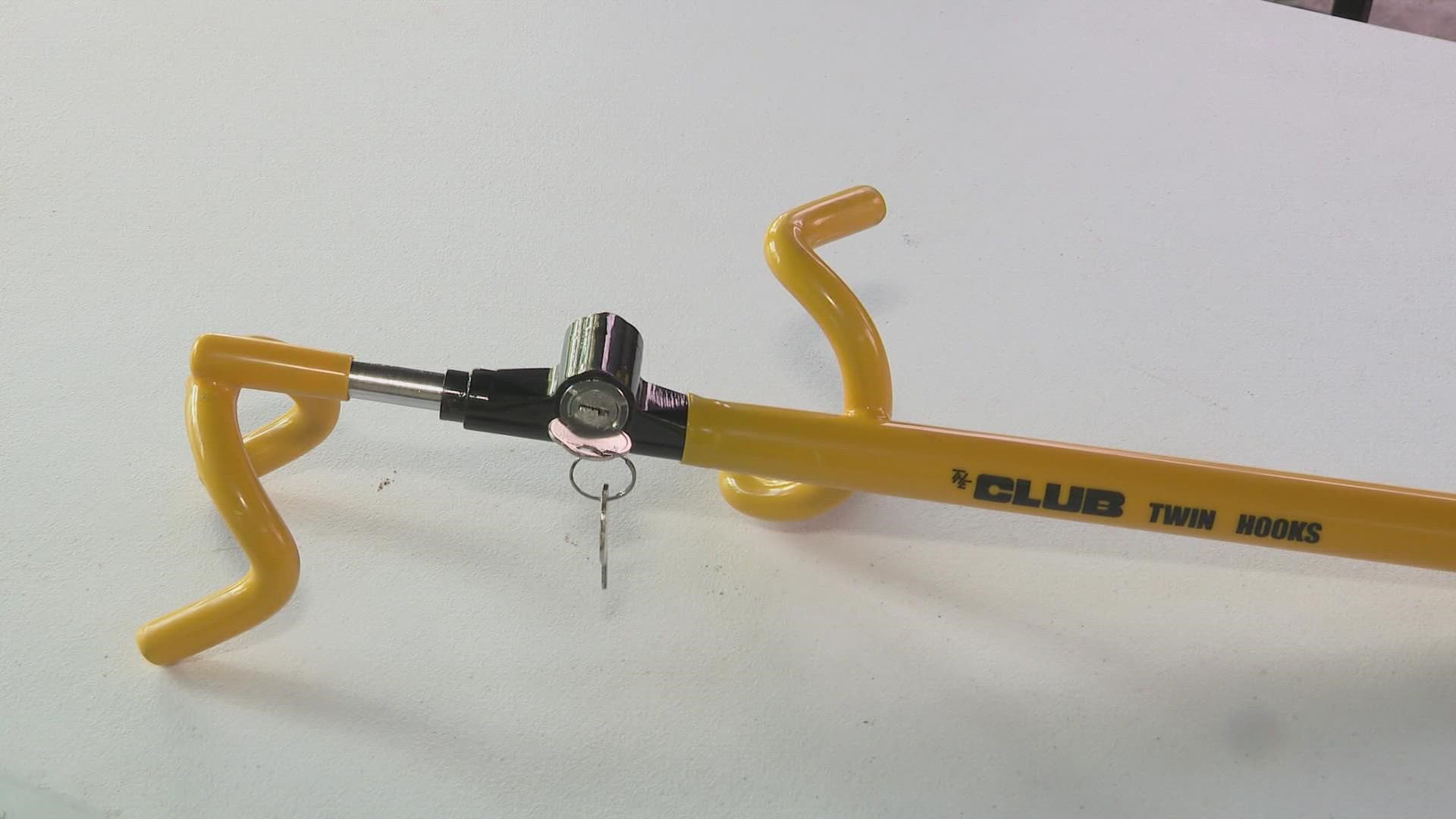Byers' Beat is a weekly column written by the I-Team's Christine Byers, who has covered public safety in St. Louis for 15 years. It is intended to offer context and analysis to the week's biggest crime stories and public safety issues.
ST. LOUIS — The Hyundai and Kia theft crisis is sending stolen car numbers surging across the St. Louis area, but another type of crime is going down: Carjackings.
St. Louis police reported 118 carjackings at this time in 2021, and have 94 so far this year.
That’s a 20% decrease.
In St. Louis County, it’s virtually the same story.
At this time last year, St. Louis County police investigated 53 carjackings. So far this year, detectives in the Crimes Against Persons unit have investigated 42 – also about a 20% decrease.
Auto theft investigators I’ve spoken to suspect that’s because it’s easier for criminals to steal Hyundais and Kias and use them to commit crimes than it is to rob someone of their car and use it for a crime spree.
Also, police are not allowed to pursue vehicles for property crimes. Stealing Hyundais and Kias fall into that category.
However, police can chase carjackers in most jurisdictions.
There is no scientific proof or study that proves the Hyundai and Kia theft crisis is driving down carjackings. It's mainly speculation from investigators who work on these types of crimes all the time.
And there are some who believe the thieves stealing Hyundais and Kias don't typically commit carjackings because it is a higher charge if they get caught.
It's just not often to see carjackings go down by double digits year-to-year.
The other biggest change in crime trends has been the Hyundai and Kia theft epidemic.
What makes some makes and models of Hyundais and Kias so easy to steal is that they’re lacking engine immobilizers – technology that requires a computer chip embedded within a car key to start the engine. Those makes and models also do not have back windows connected to car alarms.
Thieves figured out these design issues and have been spreading their methods on how to steal cars using USB cords as keys across social media platforms for more than a year now.
It’s been hitting the St. Louis region particularly hard during the past few months.
Hyundai Motor America has been saying for months that it would be making a security kit available for consumers who have these vulnerable vehicles starting Oct. 1.
The automaker sent me a picture of the device along with a list of authorized dealerships and installers. The MSRP cost of the kit is $170, according to the company.
That does not include installation costs, which vary by location.
5 On Your Side’s I-Team called the dealerships and installers on the list and none of them had the device or knew what we were talking about when we asked if they had the new kits Hyundai released on Oct. 1.
A spokesman for the company responded only, “I have confirmed the security kit information is with our dealers.”
Well, we will have to agree to disagree on that one then.
The kit is a Compustar 697A 1-way security system.
A quick Amazon search shows it selling for anywhere between $49 to $54.
Rolling out the security kit may have made things worse for the automaker in court, according to Jonathan Michaels, of California-based MLG Attorneys at Law.
His firm is now leading the charge on a total of 26 class action lawsuits that have been filed against the automakers by dozens of consumers who have had their cars stolen or seen their values plummet because of the lack of security features.
Michaels says by rolling out the fix, the company is admitting there is a problem with their products.
“Clearly, by their own admission now, they're offering this to solve a problem they have with their vehicles,” Michaels said. “So I think that you've got effectively an admission by Hyundai that they have a problem with their vehicles and that there needs to be a fix.
“They're clearly rolling this out for a reason. I think it just made matters exponentially worse for them.”
Michaels said his firm estimates as many as 4 million vehicles were not made with engine immobilizers and said Hyundai stands to profit significantly if everyone were to go buy the security kits.
“You've got a very large company that says, ‘Hey, let's go make another $630 million potentially off the backs of these unfortunate consumers,’” Michaels said.
There’s also no way for thieves to know whether a Hyundai or Kia has one of these after-market security kits until they break a window and try to steal the car. Only then will it activate the car alarm, leaving the car owner with at least a broken window to fix. One victim 5 On Your Side interviewed said he has been waiting for his dealership to replace the broken back window on his Kia for three months.
He said he was fortunate to have another family member’s car to use while he waits.
It's not a Hyundai or a Kia.
And his chances of getting carjacked for it are lower -- this year, at least.

